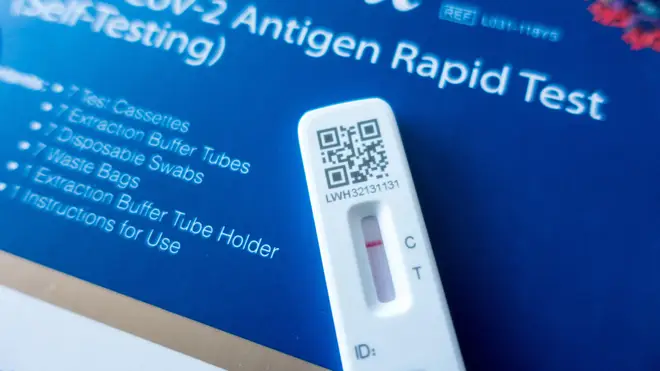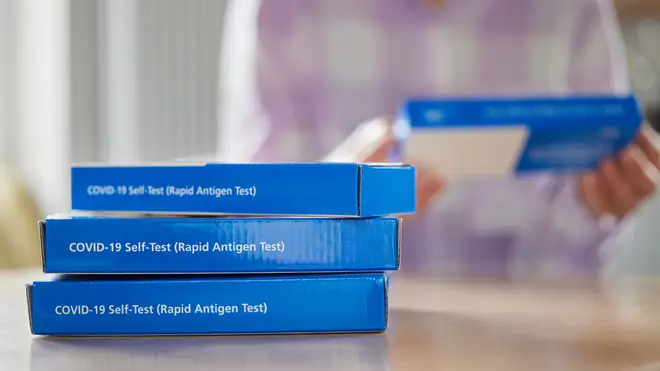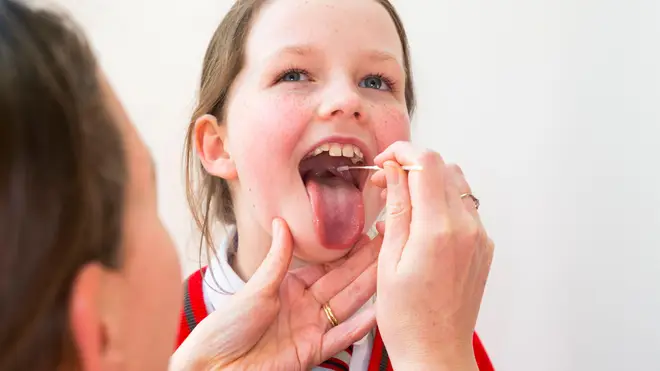On Air Now
Heart's Club Classics with Toby Anstis 7pm - 11pm
28 March 2022, 08:10 | Updated: 28 March 2022, 10:28

Boris Johnson confirms end of free testing in coronavirus statement
When do free lateral flow tests end in England and how much will they cost?
Free lateral flow tests are set to come to an end in England by the end of the week.
From Friday 1st April, the quick Covid tests will no longer be available to pick up from a pharmacist for free.
The tests will be scrapped for everyone except for care home residents, hospital patients and other vulnerable groups.
Free testing will also remain for social care workers with Covid symptoms and NHS staff.

The government is urging people not to try and order them before the cut off point, with the online ordering system saying: "Most tests are now needed for people at higher risk," according to the online ordering system.
"In England, most people without Covid-19 symptoms no longer need to take rapid lateral flow tests.
"Some people still need tests to stay safe, like NHS staff; people who are at higher risk; people who are visiting high-risk places.
"We want to make sure tests are available for people who need them most."

Free PCR tests will also not be available to people with Covid symptoms from April, except for a small number of at-risk groups.
Boots is selling single LFTs for £2 or four for £7.90.
Superdrug will charge £1.99 for one test or £9.79 for a pack of five bought in-store.
Lloyds is charging £9.49 for a pack of five, and £1.89 for a single test.
The government also has a list of private test providers.

This comes as part of the government’s ‘living with Covid’ plan, with officials saying it is no longer necessary for people to test regularly.
Despite free tests being scrapped the chief medical officer for England Sir Chris Whitty has urged the public and NHS staff to continue testing.
He said: "I've been clear . . . that people who've got significant symptoms that might be Covid should test and that if people test positive they should self-isolate.
"That's standard public health advice, nothing controversial, and that is the government's position."